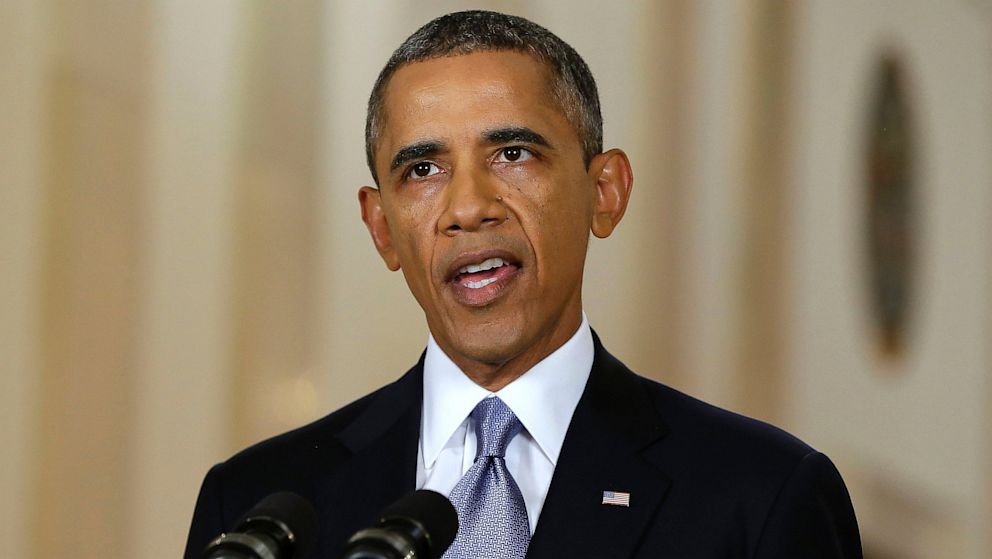by Michael YoakumImpunity Watch Reporter, North America
WASHINGTON, D.C., United States – President Obama, in a prime time speech Tuesday, called upon Congress and the American public to give him time to pursue diplomatic options for disarming the Bashar al-Assad government of its chemical weapons. The President tentatively endorsed an agreement by which Assad will surrender his chemical weapon stockpiles to the United Nations for disposal.

President Obama used most of his time persuading the American public that allowing unchecked use of chemical weapons would embolden Iran and make it easier for terrorist organizations like Al Qaeda to gain access to chemical weapons. The President also answered questions from the American public about the scope of military action expected if the diplomatic measures should fail.
The President’s call for a diplomatic solution marked the third strategy in two weeks for dealing with allegations that the Assad government was behind the August 21 sarin gas attack in Damascus.
On August 31, President Obama seemed certain of the need to make targeted cruise missile strikes against Syrian chemical weapons depots. However, the President surprised the American public and his own national security team over the Labor Day weekend by asking Congress to authorize military force in Syria.
This latest strategy came to fruition on September 9 when Secretary of State, speaking off the cuff, offered the Assad government a way to avert military action. “[Assad] could turn over every single bit of his chemical weapons to the international community in the next week,” Kerry said, adding “All of it. Turn it over. Without delay and allow a full and total accounting for that.”
While Kerry dismissed the idea that Assad would acquiesce to such a plan, Russia took steps towards putting that plan into action. Since that plan was offered, Assad has admitted to possessing stockpiles of chemical weapons and expressed his desire for Syria to join the Chemical Weapons Convention, a UN resolution banning the use of chemical weapons in war.
For more information, please see:
CNN – Syria speech: What’s next on Obama’s to-do list – 11 September 2013
NBC News – Uncertain path forward after Obama makes his case – 11 September 2013
The Guardian – Syria crisis: Obama leans to diplomacy on chemical weapons impasse – 11 September 2013
The New York Times – Planned as Call to Act, Obama’s Speech Became a Plea for Time – 11 September 2013
ABC News – Obama Blends Threat of Attack, Hope of Diplomacy – 10 September 2013



